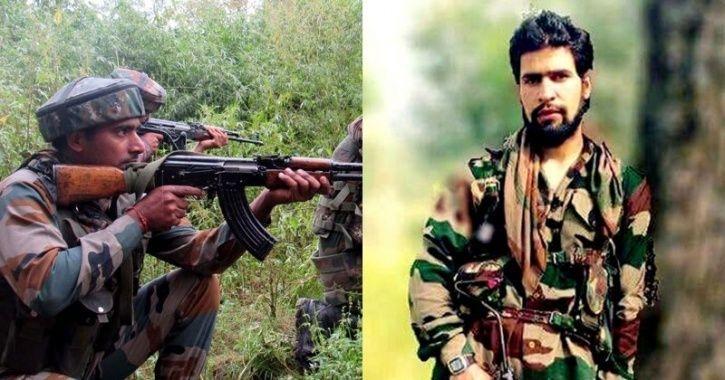After a couple months of uneasy calm following the late February crisis over Kashmir involving two down Indian jets which allegedly entered Pakistani-administered territory to raid a “terror compound” it appears the long disputed border region is heating up again. And this a day after Pakistan on Thursday decided to use the moment of Indian Prime Minister Narendra Modi’s landslide victory to a second 5-year term in the world’s largest general election to test fire a ballistic missile with a reported 1,500 kilometer range.
It appears India has hit back in its own symbolic way, signalling it will stick by its pledge to root out jihadist militants in Kashmir, which New Delhi has long charged Pakistan with harboring and supporting. Early Friday India announced its forces raided the home of a top al-Qaeda commander in southern Kashmir the night before, sparking widespread anti-India protests in the Muslim-majority region.

Twenty-five year old terrorist Zakir Rashid Bhat (also known as Zakir Musa), described as India’s “most wanted militant,” was reportedly trapped when Indian commandos set fire to his three-story house, leading police shooting and killing him during a counterinsurgency operation in the southern Tral area. “As we were clearing debris from the house, he tried to get up. Our troops fired at him and he was killed,” one police official told Reuters.
The controversial raid has again put tensions with Pakistan on edge, and has further forced Indian authorities to place the administrative region on lock down, fearing the spread of more unrest. According to Reuters:
Protests by supporters of Bhat broke out in parts of Kashmir on Thursday and there were reports of demonstrations early on Friday, the police officer said.
Fearing more unrest, authorities said schools were closed and railway services suspended in the affected areas.
Any large scale unrest in the region would be a challenge for Indian Prime Minister Narendra Modi as he prepares for a second term after winning a general election on Thursday.
Facing warnings from Pakistan, India has vowed to see through ongoing offensives against militants in the disputed Muslim-majority border region following the February suicide attack which killed 40 Indian security forces, the catalyst that almost sparked war with Pakistan, and led to the latter capturing and interrogating a down Indian pilot, before he was returned across the border.
Kashmiri people shout slogans during the funeral of Zakir Musa at his native village in Tral area of #Pulwama district in south #Kashmir. pic.twitter.com/Sj16KrY1sb
— Bhat Burhan (@bhattburhan02) May 24, 2019
Islamabad has long denied giving support to militant groups, only saying it supports “self-determination of the Kashmiri people” while condemning Indian intervention in the region.
It appears India has “answered” Thursday’s provocative Pakistani ballistic missile test by raiding a jihadist enclave in southern Kashmir.
Successful training launch of surface to surface ballistic missile Shaheen-II conducted. Capable of carrying both conventional & nuclear warheads upto a range of 1500 KMs. Shaheen-II fully meets Pak’s strat needs towards maintenance of desired deterrence stability in the region. pic.twitter.com/I9t468wxnq
— Maj Gen Asif Ghafoor (@OfficialDGISPR) May 23, 2019
A feature of Modi’s populist platform throughout his first term, which he’s promised to renew in his second, has been to “stand up to Pakistan”.
Pakistan’s leaders, meanwhile, have lately claimed they desire peace. Previously on Wednesday Pakistan’s Foreign Minister Shah Mehmood Qureshi reportedly spoke with his Indian counterpart Sushma Swaraj on the sidelines of a central Asia economic forum. Qureshi said of the unofficial meeting, “We never speak bitterly, we want to live like good neighbors and settle our outstanding issues through talks.”
Pakistan’s foreign ministry said further on Thursday of the ongoing Kashmir crisis: “Dialogue is hence essential. We remain committed to the same, irrespective of whoever forms the new government in India,” according to Reuters.
via ZeroHedge News http://bit.ly/2JAZN5H Tyler Durden